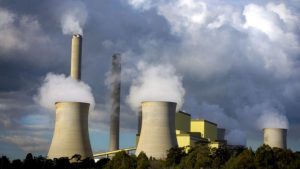*Five countries already concretized phase-out periods
Global scramble to contain growing climate change issues with embargoes on use of petrol and diesel engines is gaining momentum almost on a regular basis.
Often referred to as internal combustion engines, Britain recently announcement it plans to ban all of such new engines from its roads by 2040. Already, France; Netherlands; Germany; Norway; and India, have made concrete commitments to phase out these engines from their roads between 2025 and 2040.
Following similar pledge by France in July, Britain said its plan was part of the government’s clean air plan, which has been at the heart of a protracted high court legal battle.
Reports in the New York Times, the Guardian of the UK, and BBC, stated that the government said the plan will also take in hybrid vehicles. It marked the latest step in the battle against the damaging environmental impact of internal combustion engine by European countries.
Already, Norway which is perhaps the frontrunner in the race to replace gasoline vehicles with electric vehicles, has set 2025 as its target timeline; France like Britain has 2040 in sight; Netherlands, which has an electric vehicle penetration level of around 10 per cent in April voted to ban all new petrol and diesel car sales by 2025; just as Germany’s federal council passed a resolution on this from 2030 onward as the country pursue its 95 per cent carbon reduction goal by 2050.
On the other hand, India’s power minister, Piyush Goyal, in March confirmed his government’s plan to make India become a 100 per cent electric vehicle nation within 14 years.
Electric car penetration in major cities of China is also likely to be around 60 per cent by 2030, and could help reduce the volume of vehicle fumes which the World Health Organization (WHO) said was a major component of air pollution that killed one million Chinese in 2012 and put China at the head of a pollution-induced mortality league.
British pledge, similar to others’
Not totally different from France’s pledge, Britain’s plan is part of a growing global push to curb emissions and fight climate change by promoting electric cars.
These push has also led carmakers to begin to adjust, with Volvo notably saying recently that it would phase out the internal combustion engine in the coming years. BMW has also reportedly decided to build an electric version of its popular mini car in Britain.
In its new clean air strategy, Britain called for sales of new gas and diesel cars and vans to end by 2040. Its government will also make £255 million available for local governments to take short-term action, such as retrofitting buses, to reduce air pollution.
“It is important that we all gear up for a significant change which deals not just with the problems to health caused by emissions, but the broader problems caused in terms of accelerating climate change,” said Michael Gove, Britain’s environment secretary, to the BBC.
Similarly, Chris Grayling, the transport secretary, promised a “green revolution in transport,” adding that the government wanted nearly every car and van on Britain’s roads to have zero emissions by 2050.
Britain’s strategy document was published after a protracted legal battle in which ministers were ordered by the courts to produce new plans to tackle illegal levels of nitrogen dioxide.
Frederik Dahlmann, assistant professor of global energy at Warwick Business School, reportedly described the decision as “an important step” that set a clear long-term target, and “also gives car buyers an incentive to consider the different types of engine options available in light of the long-term development of the market.”
Growing awareness of health hazard sustains shift
Also, industry reports indicate the shift away from internal combustion engines is in large part a result of growing awareness of the health hazards of petrol cars.
The New York Times explained that cities such as Madrid; Munich; and Stuttgart are equally considering diesel bans on a micro level, adding that while sales of diesel cars are plunging, political leaders are also under pressure to end the de-facto subsidies of diesel fuel that prevail in Europe.
Accordingly, European countries kept taxes on diesel lower than on petrol in the belief that it was kinder to the planet, but eventually discovered that diesel engines which do spew less carbon dioxide, a cause of global warming, than gasoline engines, equally produce more nitrogen oxides, a family of gases that cause asthma and are responsible for the smog that sometimes blankets London and other major cities.





